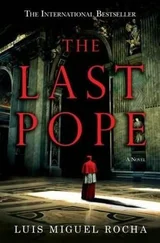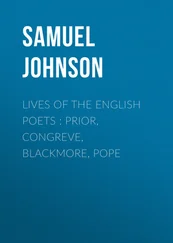John Dennis - The Age of Pope
Здесь есть возможность читать онлайн «John Dennis - The Age of Pope» — ознакомительный отрывок электронной книги совершенно бесплатно, а после прочтения отрывка купить полную версию. В некоторых случаях можно слушать аудио, скачать через торрент в формате fb2 и присутствует краткое содержание. Жанр: foreign_antique, foreign_prose, на английском языке. Описание произведения, (предисловие) а так же отзывы посетителей доступны на портале библиотеки ЛибКат.
- Название:The Age of Pope
- Автор:
- Жанр:
- Год:неизвестен
- ISBN:нет данных
- Рейтинг книги:3 / 5. Голосов: 1
-
Избранное:Добавить в избранное
- Отзывы:
-
Ваша оценка:
- 60
- 1
- 2
- 3
- 4
- 5
The Age of Pope: краткое содержание, описание и аннотация
Предлагаем к чтению аннотацию, описание, краткое содержание или предисловие (зависит от того, что написал сам автор книги «The Age of Pope»). Если вы не нашли необходимую информацию о книге — напишите в комментариях, мы постараемся отыскать её.
The Age of Pope — читать онлайн ознакомительный отрывок
Ниже представлен текст книги, разбитый по страницам. Система сохранения места последней прочитанной страницы, позволяет с удобством читать онлайн бесплатно книгу «The Age of Pope», без необходимости каждый раз заново искать на чём Вы остановились. Поставьте закладку, и сможете в любой момент перейти на страницу, на которой закончили чтение.
Интервал:
Закладка:
The cruelty of the age is seen in a contempt for the feelings of others, in the brutal punishments inflicted, in the amusements then popular, and in a general contempt for human suffering. Public executions were so frequent that they were disregarded; and criminals of any note, like Dr. Dodd, were exhibited in their cells for the gaolers' benefit prior to execution; mad people in Bedlam, chained in their cells, also formed one of the sights of London. As late as 1735 men were pressed to death who refused to plead on a capital charge; and women were publicly flogged, and were also burnt at the stake by a law that was not repealed until 1794. Of the heads on Temple Bar, daily exposed to Johnson's eyes in his beloved Fleet Street, we are reminded by an apposite quotation of Goldsmith; and Samuel Rogers, the banker-poet, who died as recently as 1855, remembered having seen one there in his childhood. The public exhibition of offenders in the pillory was not calculated to refine the manners of the people. It afforded a cruel entertainment to the mob, who may be said to have baited these poor victims as they were accustomed to bait bulls and bears. Every kind of offensive missile was thrown at them, and sometimes the strokes proved deadly.
Men who could thus torture a human being were not likely to abstain from cruelty to the lower animals. The poets indeed protested then, as poets had done before, and always have done since, against the unmanly treatment of the dumb fellow-creatures committed to our care, but their voices were little heeded, and even the Prince of Wales visited Hockley-in-the-Hole, in disguise, to witness the torturing of bulls. 'The gladiatorian and other sanguinary sports,' says the author of the Characteristics , 'which we allow our people, discover sufficiently our national taste. And the baitings and slaughters of so many sorts of creatures, tame as well as wild, for diversion merely, may witness the extraordinary inclination we have for amphitheatrical spectacles.' 7 7 Shaftesbury's Characteristics , vol. i. p. 270.
The majesty of the law was maintained by disembowelling traitors, by cutting off the ears, or branding the cheeks of political offenders, and by the penalties inflicted on Roman Catholics, and on Protestant dissenters. Men who deemed themselves honourable gained power through bribery and intrigue. It was through a king's mistress and a heavy bribe that Bolingbroke was enabled to return from exile; Chesterfield intrigued against Newcastle with the Duchess of Yarmouth; and clergymen eager for promotion had no scruple in paying court to women who had lost their virtue.
Never, unless perhaps during the Civil War, was the spirit of party more rampant in the country. Patriotism was a virtue more talked about than felt, and in the cause of faction private characters were assailed and libels circulated through the press. Addison, who did more than any other writer to humanize his age, saw the evil of the time and struck a blow at it with his inimitable humour. The Spectator discovers, on his journey to Sir Roger de Coverley's house, that the knight's Toryism grew with the miles that separated him from London:
'In all our journey from London to his house we did not so much as bait at a Whig inn; or if by chance the coachman stopped at a wrong place, one of Sir Roger's servants would ride up to his master full speed, and whisper to him that the master of the house was against such an one in the last election. This often betrayed us into hard beds and bad cheer; for we were not so inquisitive about the inn as the innkeeper; and provided our landlord's principles were sound did not take any notice of the staleness of his provisions. This I found still the more inconvenient, because the better the host was, the worse generally were his accommodations; the fellow knowing very well that those who were his friends would take up with coarse diet and hard lodging. For these reasons, all the while I was upon the road, I dreaded entering into an house of anyone that Sir Roger had applauded for an honest man.' 8 8 Spectator , No. 126.
Against the party zeal of female politicians Addison indulges frequently in humorous sallies. He assures them that it gives an ill-natured cast to the eye, and flushes the cheeks worse than brandy. Party rage, he says, is a male vice, and is altogether repugnant 'to the softness, the modesty, and those other endearing qualities which are natural to the fair sex.'
'When I have seen a pretty mouth uttering calumnies and invectives, what would I not have given to have stopt it? how have I been troubled to see some of the finest features in the world grow pale and tremble with party rage. Camilla is one of the greatest beauties in the British nation, and yet values herself more upon being the virago of one party than upon being the toast of both. The dear creature about a week ago encountered the fierce and beautiful Penthesilea across a tea-table; but in the height of her anger, as her hand chanced to shake with the earnestness of the dispute, she scalded her fingers, and spilt a dish of tea upon her petticoat. Had not this accident broke off the debate, nobody knows where it would have ended.'
The coffee-houses in which men aired their wit and discussed the news of the day were wholly dominated by party. 'A Whig,' says De Foe, 'will no more go to the Cocoa Tree or Ozinda's than a Tory will be seen at the coffee-house of St. James's.' Swift declared that the Whig and Tory animosity infected even the dogs and cats. It was inevitable that it should also infect literature. Books were seldom judged on their merits, the praise or blame being generally awarded according to the political principles of their authors. An impartial literary journal did not exist in the days when Addison 'gave his little senate laws' at Button's, and perhaps it does not exist now, but if critical injustice be done in our day it is rarely owing to political causes.
One of the most prominent vices of the time was gambling, which was largely encouraged by the public lotteries, and practised by all classes of the people. This evil was exhibited on a national scale by the establishment of the South Sea Company, which exploded in 1720, after creating a madness for speculation never known before or since. Even men who like Sir Robert Walpole kept their heads, and saw that the bubble would soon burst, invested in stock. Pope had his share in the speculation, and might, had he 'realized' in time, have been the 'lord of thousands;' in the end, however, he was a gainer, though not to a large extent. His friend Gay was less fortunate. He won £20,000, kept the stock too long and was reduced to beggary. The South Sea Bubble and the Mississippi scheme of Law which burst in the same year and ruined tens of thousands of French families, afford illustrations on a gigantic scale of the prevailing passion for speculation and for gambling.
'The Duke of Devonshire lost an estate at a game of basset. The fine intellect of Chesterfield was thoroughly enslaved by the vice. At Bath, which was then the centre of English fashion, it reigned supreme; and the physicians even recommended it to their patients as a form of distraction. In the green-rooms of the theatres, as Mrs. Bellamy assures us, thousands were often lost and won in a single night. Among fashionable ladies the passion was quite as strong as among men, and the professor of whist and quadrille became a regular attendant at their levees. Miss Pelham, the daughter of the prime minister, was one of the most notorious gamblers of her time, and Lady Cowper speaks in her Diary of sittings at Court, of which the lowest stake was 200 guineas. The public lotteries contributed very powerfully to diffuse the taste for gambling among all classes.' 9 9 Lecky's England , vol. i. p. 522.
Интервал:
Закладка:
Похожие книги на «The Age of Pope»
Представляем Вашему вниманию похожие книги на «The Age of Pope» списком для выбора. Мы отобрали схожую по названию и смыслу литературу в надежде предоставить читателям больше вариантов отыскать новые, интересные, ещё непрочитанные произведения.
Обсуждение, отзывы о книге «The Age of Pope» и просто собственные мнения читателей. Оставьте ваши комментарии, напишите, что Вы думаете о произведении, его смысле или главных героях. Укажите что конкретно понравилось, а что нет, и почему Вы так считаете.












